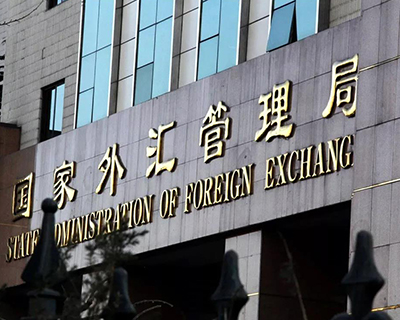China will open its $44 trillion financial sector to the world by removing limits on ownership in local banks and scrap size requirements for foreign firms that operate onshore. Overseas insurance groups will be allowed to set up businesses in China. This is happening in the light of US-China trade talks.

Image: economics.dwnews
China seeks to attract foreign banking and insurance businesses by loosening the regulations for these foreign companies in China. As the demand for USD increases for the Chinese government, the more they have to open up the Chinese market for new investments. The growth over the last few decades was fueled on foreign investment into China. As lower end manufacturing has moved towards less developed countries, China has offset that with ever increasing competency in more and more industries.
The new measures to attract foreign investment capital by allowing foreign banks and insurance companies to have more freedom to operate, may or may not bring in lots of capital. Massive amounts of money have been moving out of China, and the structural changes necessary to change that are massive. Chinese banks are mostly invested in old state-owned-enterprises that have no chance of paying back their loans.
According to Guo Shuqing, chairman of the China Banking and Insurance Regulatory Commission (CBIRC, after conducting in-depth study and evaluation, China will soon issue 12 new opening-up measures to further level the playing field for foreign and domestic companies.
China will remove the ownership limits in Chinese commercial banks for both Chinese and foreign banks. China will also scrap the total asset requirements of $10 billion and $20 billion for foreign banks to set up foreign-funded banks and subsidiaries, respectively, in China.
China will allow overseas financial institutions to become shareholders of foreign-owned insurance companies in China. Foreign insurance groups will be permitted to establish insurance companies in China based on the requirements of Chinese-funded insurance groups.
Requiring 30 years of operation and total assets of no less than $200 million for foreign insurance brokerage companies to do business in China will also be canceled.
At the same time, China will relax access policies for Chinese and foreign financial institutions in the establishment of consumer finance companies. The $1 billion asset requirement for overseas financial institutions to invest into Chinese trust companies will also be lifted.
According to Guo private capital currently accounts for 43% of total equity in Chinese joint-stock banks, 56% in municipal commercial banks, 83% in rural commercial banks and 49% in insurers, while foreign invested banks and foreign invested insurers account for 1.64% and 6.36% of total assets in their respective sectors in China.

Image: peoplenews.tw
The rules are an incremental step along the path to opening China’s financial system, months after foreign firms were permitted majority stakes in local securities joint ventures.
The changes build on steps China’s leaders have taken in the past 18 months to level the playing field between overseas and local firms, as they’ve come under increasing pressure from U.S. President Donald Trump’s administration. Fresh funds would provide support for a banking industry under pressure from a slowing economy and rising bad loans.
“China is delivering on promises made to further open the financial markets to foreign companies, both big and small,” said Liao Chenkai, a Shanghai-based analyst at Capital Securities Corp. “This may also be a possible response to the trade war with the U.S., pushing China to further open its markets.
In sectors from banking to insurance and brokerage, local firms still dominate with more than 90 percent market share. Lengthy and often opaque application processes can deter foreign investors, while key areas of finance, such as bond underwriting, are mainly reserved for domestic companies.
The CBIRC in August removed some limits on foreign ownership of Chinese lenders and bad-debt managers, following through on a pledge made in late 2017 to amend rules and welcome global players. The latest changes scrap all ownership restrictions, though the regulator will still have to approve deals.
Following the previous rounds of easing, ING Group (ING), became the first foreign firm announcing plans to take a 51 percent stake in an onshore retail banking venture under China’s new ownership regulations. The Dutch firm is also the largest shareholder in Bank of Beijing.
Despite the potential on offer, international companies will face challenges as they try to establish themselves in China. The main competition comes from government-controlled rivals that dominate the financial system and have longstanding relationships with the state-owned enterprises that drive much of China’s economic activity.
Below is a translation of the 12 measures:
1. The simultaneous cancellation on ceilings on holdings of equity by a single Chinese-invested or a single foreign-invested bank in a Chinese commercial bank, in accordance with the principle that domestic and foreign investors are treated consistently;
2. The cancellation of the USD$10 billion total assets requirement for foreign banks establishing foreign invested legal person banks in China, and the $20 billion total assets requirement for foreign banks establishing branches in China;
3. The cancellation of the $1 billion total assets requirement for offshore financial institutions investing in the equity of trust companies;
4. Allowing offshore financial institutions to invest in the equity of foreign-invested insurers in China;
5. The cancellation of the requirement that insurance brokers engaging in insurance brokerage operations in China have been in operation for at least 30 years, and have total assets of no less than $200 million;
6. Loosening of restrictions on Chinese shareholders in Sino-foreign joint-venture banks, and the cancellation of the requirement that the sole or primary Chinese shareholder be a financial institution;
7. Encouraging and supporting foreign financial institutions to engage in equity, operational and technical cooperation with privately controlled banking sector and insurance sector institutions;
8. Allowing foreign insurance group companies to invest in the establishment of insurance institutions;
9. Allowing foreign-invested insurance group companies in China to establish insurance institutions with reference to the qualification requirements for Chinese-invested insurance group companies;
10. The simultaneous loosening of entry policies for Chinese-invested and foreign-invested financial institutions to invest in and establish consumer finance companies, in accordance with the principle that domestic and foreign investors are treated consistently;
11. The cancellation of examinations and approvals for foreign-invested banks to handle renminbi operations, and allowing foreign-invested banks to engage in renminbi operations when they do business;
12. Allowing foreign-invested banks to engage in agency collection and payments operations.
References: www.hitouch.com




